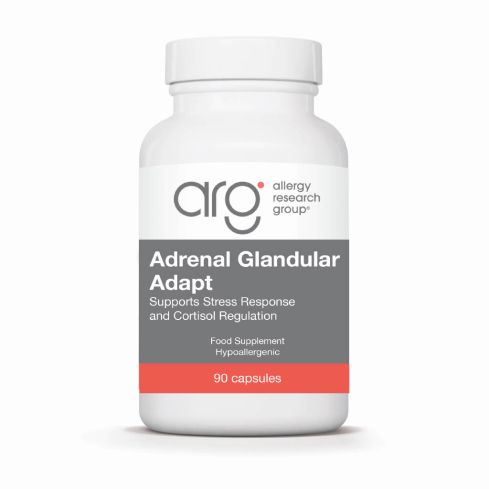- Home
- Products
- Conditions
- Anxiety and Mood Support
Anxiety and Mood Support
Anxiety is an unpleasant complex combination of emotions often accompanied by physical sensations such as heart palpitations (irregular heartbeat), nausea, angina (chest pain), shortness of breath, tension headache, and nervousness. It also distracts from concentration, memory and overall cognitive function.
Anxiety disorders affect many adults aged 18 years and older (about 18%) in a given year. However, only about one-third of those suffering from an anxiety disorder receive any treatment.
Unlike the relatively mild, brief anxiety that can be caused by a stressful event (such as testing, a job interview, the death of a loved one, or public performance/speaking), anxiety disorders last at least six months and can become worse if not treated.
Anxiety disorders can commonly occur along with other mental or physical illnesses, including alcohol or substance abuse, depression, or bipolar illness, which may mask anxiety symptoms or make them worse.
Individuals with an anxiety disorder are three to five times more likely to go to the doctor and six times more likely to be hospitalised for psychiatric disorders than non-sufferers.
Psychiatric disorders, also called psychological disorders, are illnesses of the brain that cause disruptions in a patient’s thinking, feeling, moods, and ability to relate to others. Psychiatric disorders are classified into different groups, including anxiety disorders, mood disorders, adjustment disorders, developmental disorders, somatoform disorders, dissociative disorders, personality disorders, and psychotic disorders.
Psychiatric disorders can occur in patients of all ages, genders, races, and ethnic backgrounds. The exact cause of psychiatric disorders remains unknown. Researchers believe a combination of factors, including genetics and environmental stimuli (such as traumatic events exposures and nutrient deficiencies), inflammation and dysbiosis may lead to the development and amplification of mental illnesses.
Always seek medical advice when faced with any condition, including anxiety and depression.
References
- Arranz MJ, de Leon J. Pharmacogenetics and pharmacogenomics of schizophrenia: a review of last decade of research. Mol Psychiatry. 2007 Jun 5; View Abstract.
- Fava GA, Fabbri S, Sirri L, et al. Psychological factors affecting medical condition: a new proposal for DSM-V. Psychosomatics. 2007 Mar-Apr;48(2):103-11. View PDF
- Hyler SE, Sussman N. Somatoform disorders: before and after DSM-III. Hosp Community Psychiatry. 1984 May;35(5):469-78.View Abstract.
- Bear T, Dalziel J, Coad J, Roy N, Butts C, Gopal P. The Microbiome-Gut-Brain Axis and Resilience to Developing Anxiety or Depression under Stress. Microorganisms. 2021 Mar 31;9(4):723. View Full Paper
- Modestin J, Hermann S, Endrass J. Schizoidia in schizophrenia spectrum and personality disorders: Role of dissociation. Psychiatry Res. 2007 Jun 12; View Abstract.
- Morgan S, Taylor E. Antipsychotic drugs in children with autism. BMJ. 2007 May 26; 334(7603):1069-70. View PDF.
- Saccaro LF, Schilliger Z, Perroud N, Piguet C. Inflammation, Anxiety, and Stress in Attention-Deficit/Hyperactivity Disorder. Biomedicines. 2021 Sep 24;9(10):1313. View Full Paper
- Muscaritoli M. The Impact of Nutrients on Mental Health and Well-Being: Insights From the Literature. Front Nutr. 2021 Mar 8;8:656290. View Full Paper
- 4 items
- 15 items
- 9 items
- 6 items
- 2 items
- 13 items
- 10 items
- 3 items
- 2 items
- 1 item
- 5 items
- 1 item
- 14 items
- 5 items
- 17 items
- 12 items
- 2 items
- 22 items
- 23 items
- 6 items
- 7 items
- 14 items
- 14 items
- 8 items
- 25 items
- 5 items
- 6 items














